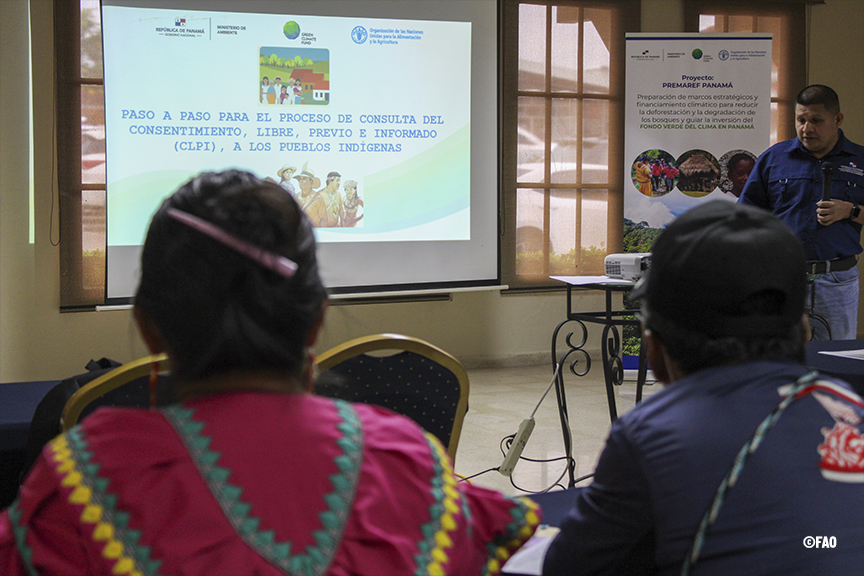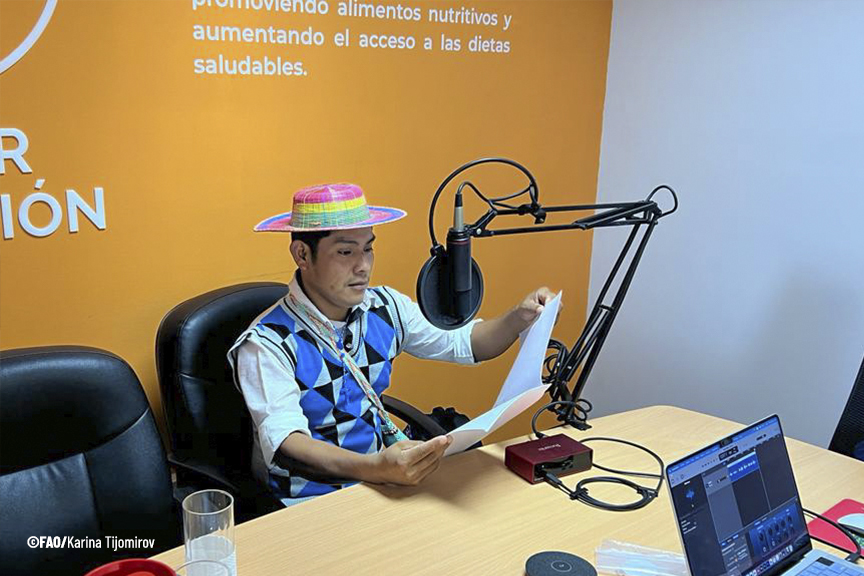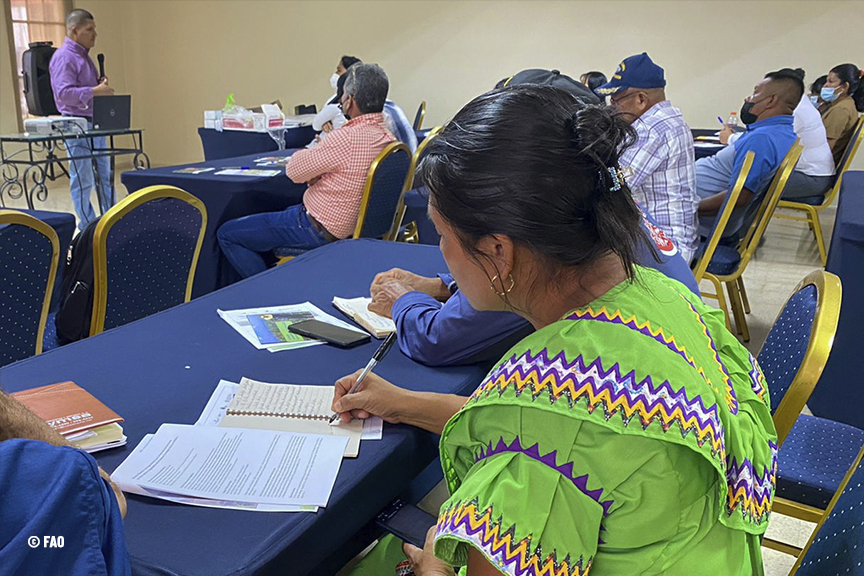Indigenous Peoples' representatives participate in a workshop on social and environmental safeguards for REDD+, held in Santiago de Veraguas, Panama.
For Panama, involving and consulting Indigenous Peoples in forest protection is key to achieving climate and conservation outcomes. The importance of their participation is so recognized that the country has enshrined these rights into law
The process of Free, Prior, and Informed Consent (FPIC) of Indigenous Peoples as an essential requirement for any activity that affects their ancestral lands, territories, and natural resources, was regulated into Panamanian law in 2016.
It establishes the consultation and FPIC of Indigenous Peoples when legislative and administrative measures are to be implemented that affect their collective rights, including their lands, territories, resources, livelihoods, and culture.
FPIC is an internationally accepted principle of sustainable development, recognizing the need for a consultation process through which a community involved in an initiative or project actively participates in an open and informed dialogue with stakeholders interested in carrying out activities in areas traditionally occupied or used by the community. This principle not only ensures that the voices of Indigenous Peoples are heard but also strengthens their sense of belonging and commitment to the projects.
In 2007, the United Nations General Assembly adopted the Declaration on the Rights of Indigenous Peoples, recognizing their rights and specifically highlighting FPIC as an essential requirement for any activity that affects their ancestral lands, territories, and natural resources.
Indigenous Peoples are widely seen as the best guardians of the forests. Along with other local communities, they are the custodians of 80 percent of the world's biodiversity and manage at least 24 percent of the total carbon stored above ground in the world's tropical forests.
Indigenous Peoples have been present for thousands of years, preserving their languages, traditions, culture, and livelihoods. They share collective ancestral ties to the land and natural resources in the territories they inhabit, playing a significant role in forest resource management and overall land use

Indigenous Peoples' representatives participate in a workshop on social and environmental safeguards for REDD+, held in Santiago de Veraguas, Panama.
Since 2011, Panama has received support for the preparation of the REDD+ process in the country. Initially, through an UN-REDD National Joint Programme the processes of regional consultations on priorities and actions related to REDD+ were initiated, and later with the support of the World Bank's Forest Carbon Partnership Facility, the groundwork was laid for a National REDD+ Strategy.
In 2022, a key initiative was implemented as part of the project for preparing strategic frameworks and climate finance to reduce deforestation and forest degradation and guide the Green Climate Fund investment in Panama.
This project, led by the Food and Agriculture Organization of the United Nations (FAO) in collaboration with the Ministry of Environment of Panama (MiAMBIENTE) and financed by the Green Climate Fund (GCF), updated the strategy and developed a step-by-step document specific to the FPIC consultation process for Indigenous Peoples in Panama for the development of REDD+ projects.
This document was presented for consultation to key Indigenous stakeholders in the provinces of Veraguas, Darién, and Bocas del Toro. Designed as an essential tool, it is intended for planners, designers, project developers, and Indigenous communities within the framework of the National REDD+ Strategy.
The document facilitates the application of FPIC in eight steps, also serving as a guide or reference for any project or development initiative to be implemented in Indigenous communities, territories, and lands, and that may affect their ancestral lands, territories, natural resources, livelihoods, traditions, social fabric, knowledge, governance systems, and culture.

Luis Blanco provides narration for educational videos on FPIC and REDD+ from Spanish to the Buglé language at the FAO office in Panama.
As part of the visibility and dissemination efforts for this document, MiAMBIENTE, with FAO support, developed various materials to help bring the step-by-step process to the communities. These efforts included creating a series of educational videos translated into six Indigenous languages of Panama: Guna, Emberá, Wounaan, Ngöbe, Buglé, and Bribri.
In the translation process, close collaboration was maintained with the authorities of each Indigenous people to designate translators, ensuring that the materials were culturally and linguistically appropriate. With these resources, the goal is not only to inform but also to empower Indigenous communities, ensuring that their voices are heard and respected in all development processes.
Panama's commitment to FPIC is an example of how inclusive policies can lead to positive outcomes both for Indigenous communities and for the country's efforts to mitigate the effects of climate change.
The collaboration between MiAMBIENTE, FAO, and the work done with the UN-REDD National Joint Program and other REDD+ efforts in the country highlights the importance of working together to address global challenges like climate change and biodiversity conservation in harmony with forest-dependent communities.
Links:



